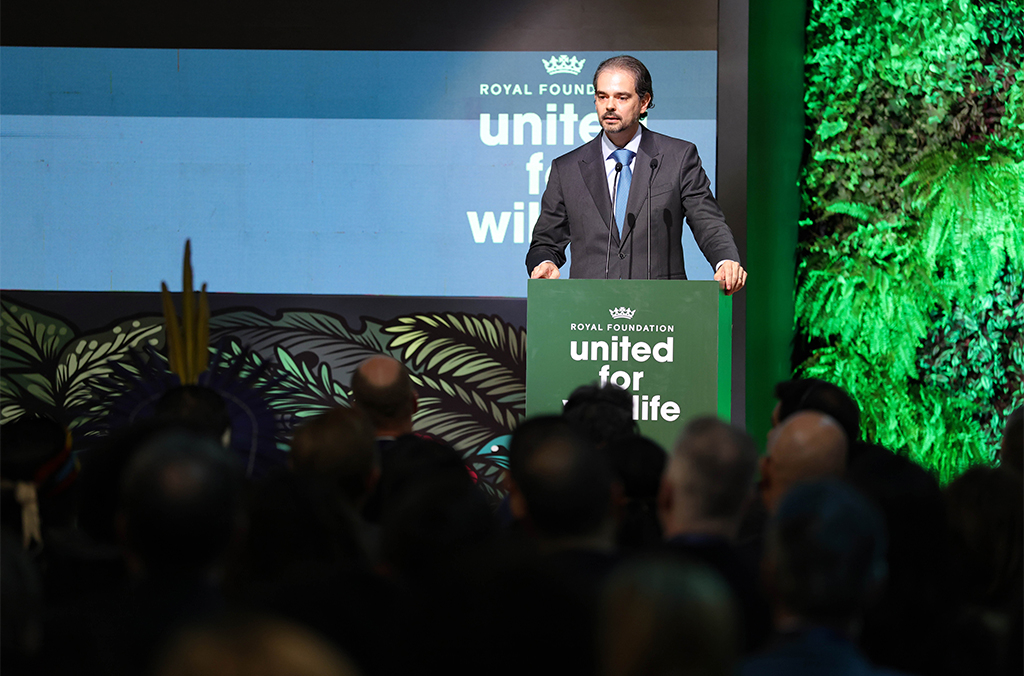RIO DE JANEIRO, Brazil – INTERPOL, the United Nations Office on Drugs and Crime (UNODC), and the Government of Norway have launched the next stage of a major global effort to fight illegal tropical deforestation.
The third phase of the Law Enforcement Assistance Programme to Reduce Tropical Deforestation (LEAP) was announced today in the margins of the United for Wildlife Global Summit in Rio de Janeiro.
Funded by the Norwegian International Climate and Forest Initiative (NICFI), this new phase marks an important step in protecting some of the world’s most threatened forests.
LEAP helps countries work together to stop the criminal networks that profit from illegal logging and timber trafficking. From Asia-Pacific to Latin America, the programme brings together police, customs, environmental authorities, prosecutors, and financial investigators to share information, carry out joint operations and strengthen laws.
Since its launch in 2018, LEAP has grown from a project focused on forest crime enforcement into a global initiative delivering both strategic and operational impact.
- Phase I (2018–2022) mapped illegal logging and timber trafficking routes, identified priority areas, and promoted cooperation between agencies.
- Phase II (2023–2025) built on this foundation with targeted operations, intelligence-driven investigations, and cross-border coordination to dismantle organized crime networks and strengthen national capacities.
Coordinated operations have exposed criminal enterprises exploiting hundreds of thousands of hectares of forests and generating millions in illicit revenues each year.
INTERPOL Secretary General Valdecy Urquiza said:
“Criminals are making billions by looting the planet’s forests and destroying ecosystems that sustain us all. The only way to stop them is through determined law enforcement action and strong cooperation between agencies, governments and the private sector worldwide.
“LEAP has already proven that collaboration works - delivering real results against one of the world’s most profitable environmental crimes. INTERPOL is proud to renew its partnership with NICFI and UNODC to take this fight even further.”

Ghada Waly, Executive Director of UNODC said:
“Illegal deforestation and environmental crime threaten our planet’s biodiversity, weaken the rule of law, and finance organized crime.
“Confronting these crimes requires a joint response – one that brings together law enforcement, justice systems, and local communities. In partnership with INTERPOL and the Government of Norway, we are committed to protecting the world’s forests, upholding justice, and ensuring that criminals who profit from the exploitation of the environment are held accountable.”
Andreas Bjelland-Eriksen Norway’s Minister for Climate and Environment said:
“Combating forest crime is a key element to succeed in protecting the world’s forests and the people who depend on them. Forest crime is closely linked to other forms of international organized crime, often backed by powerful interests.
“I am proud to continue the strong collaboration with UNODC and INTERPOL in the fight against forest crime, to strengthen law enforcement and protect tropical forests.”
In addition to the arrests and seizures, LEAP has created a strong international network of partners working to address how forest crime connects to broader financial and environmental crime networks.
Phase III will build on these results by helping countries share intelligence more effectively, strengthen regional cooperation, and boost law enforcement’s ability to detect, disrupt and prosecute environmental crimes.
It will also work closely with civil society, the private sector, and regional and international partners to ensure a strong and coordinated global response.
The new phase will mainly focus on tropical forests in Brazil, Ecuador, Indonesia, Papua New Guinea and Peru, and will also address illegal mining - especially in the Amazon Basin - as a major cause of deforestation.




